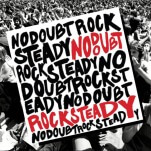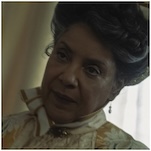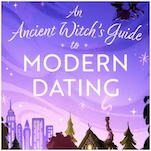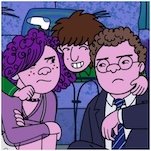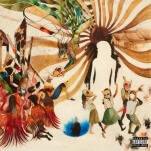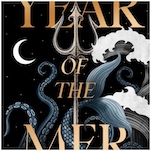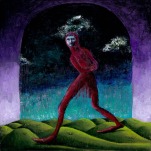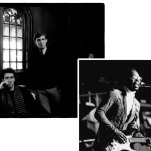There have been controversial shows in the past—way more controversial than Girls, in terms of content—but nobody produces quite the same level of hand-wringing and kvetching and crazy accusations as Lena Dunham. According to some, she’s a spoiled New York City rich kid who owes all her success to her parents, and also a virulent racist who’s spreading white superiority and privilege via her casting choices. According to others, this is just reactionary nonsense, and Dunham is bold and courageous and the kind of person who makes everyone jealous. And those are just the hot takes from the liberal side of the spectrum—conservatives tend to keep it simpler and just think up new ways to call her “fat.”
Before I turn the rest of this post over to 12 of the most representative think pieces from the past three years, I should probably take a stance of my own. So: I think Girls is a terrific show, and I think Lena Dunham has serious cojones. Until she lets me down, I’m on board for whatever she decides to do with the show, just as I think all artists should be allowed to succeed or fail based on their own creative instincts, rather than a crowd-sourced notion of political correctness.
THAT BEING SAID, let’s get to the think pieces! How else can we appreciate all that Dunham and Girls represent? I’ve only included examples from more-or-less leftist writers and outlets, since there’s not much nuance to the fat-shaming side. However, there are two red-hot celebs among the bunch. Enjoy!
Michelle Dean, The Nation, Oct. 9, 2012
Main Theme: Lena Dunham is Rich and White and American
If we want to talk about what it is to be born on third and think you’ve hit a triple, that’s the real essence of it: knowing that there is a world in which you write books, make movies, write television shows, and people pay you to do it. The great lie of America, it’s always seemed to me (as a Canadian), lies in the frequent avowal that it’s a place anyone can do anything they set their mind to…If America is a land of greater opportunity than others, it is far from one where talent and drive are enough. The curtains don’t fall at equal speed on the dreams of say, a white guy at Princeton and those of a Hispanic domestic worker in Los Angeles. This kind of thing is not just lost on the quick-at-the-keyboard folk who love to love and hate her; it is lost on Dunham too.
Sickest Burn:
As Dunham increasingly turns towards mogul-hood—her new book will be very much pegged to her “brand”—it’s hard to see how she will slip out of that conundrum, because a mogul must above all be liked, at the expense of other goals. That’s not even speaking of the difficulty involved in taking the specific experience of being a Brooklyn WASP of a “girl,” and making that standard feel inclusive and appropriately reflective in a time of a serious wealth and career expectations gap. But then, the confidence has never been the question, has it? Ambition, she has.
Jenna Wortham, The Hairpin, April 16, 2012
Main Theme: Lena Dunham is Racist
I paused at the base of the poster and looked up — it covered the entire side of the building. My eyes traveled up their phosphorescent legs to their faces and back down again. My heart dropped and I swallowed once, hard. Girls. White girls…I definitely did not expect these kinds of girls. They looked like the kinds of girls in college who would push their hands into my freshly teased party hair – without asking – to ask me if my curls were real and whose already overstretched smiles would wobble a little bit when I showed up at the party with my roommates before cautiously asking if I went to school there.
Sickest Burn:
Buried within that oversight is a kind of uncomfortable exclusivity, an othering of the people who are not included, by default, stirring the same kind of unease that’s evoked when scrolling through those racist Hunger Games tweets or the first time you read that ESPN headline about Jeremy Lin. For a show so sharply cognizant of the shortcomings of its characters, it is shocking that the only drops of a black girl is a contestant on a reality show (not pictured, by the way) who spends $1,000 on her weave and describes it as “un-be-weavable.”
Hilton Als, The New Yorker, April 30, 2012
Main Theme: Lena Dunham is Not Racist
According to Dunham’s critics, the black presence described in the preceding anecdote doesn’t even feel like a thought in her television series, but why should it? Dunham is accurately describing the ways in which, once things get sexual in her world, and girls become women, the universe gets polarized, segregated—her female characters are looking for white male validation, which is their right.
Maddest Props:
Also, isn’t Dunham doing women of color a favor by not trying to insert them into her world where ideas about child-rearing, let alone man and class aspirations, tend to be different? John Lennon once said if you want your kids to stay white, don’t have them listen to black music. And I think it’s crazy to assume Dunham hasn’t. She grew up in New York, and you can see it in her clothes and body: no white girl allows herself to look like that if she didn’t admire the rounder shapes, and more complicated stylings, that women of color tend to pursue as their idea of beauty.
Rebecca Carroll, Gawker, Oct. 24, 2014
Main Theme: Lena Dunham is a Racist
Supporters of Dunham’s work have said that even as a suddenly famous young writer and director smack dab in the media spotlight, she should not be expected to single-handedly dismantle racism in all of mainstream media. But shouldn’t she be?
Sickest Burn:
And then I am catapulted back to what it is that bothers me so deeply about Dunham. It is absurd and frankly racist that the literary world’s axis is now set to spin based on whatever utterances are made by a 20-something white woman who grew up in wealth, likes to get naked and have sex on TV and call it feminism, and who is almost entirely exclusionary on the subject of race.
Sonia Sariya, Salon, Oct. 24, 2014
Main Theme: Lena Dunham is Not a Racist
Part of the reason that the conversation around Lena Dunham and race stagnated so fast is that it’s more about the way the media covers Hollywood than it is about Hollywood itself. And it’s hard not to keep retreading the same ground when critiques of Dunham’s book are less about Lena than they are about us.
Maddest Props, Kinda?:
It’s no secret that Dunham inspires a lot of soul-searching, especially from other women…and this soul-searching is generally an unpleasant experience…just last week I wrote about how Dunham’s work makes it hard to keep myself out of the analysis, despite its blinkered worldview. And what’s strange about so many of the pieces about Dunham that have been published in the wake of her memoir, “Not That Kind of Girl,” is that her book seems to confirm either our worst fears or greatest hopes for it, depending on what we were looking for…Something about Dunham’s work inspires young female creative types to wax poetic about our own creative potential, and it’s a mirroring effect that can be blinding.
Judy Berman, Atlantic, Jan. 22, 2013
Main theme: Lena Dunham is a Racist
What Dunham’s latest well-intentioned disappointment makes clear is that it will never be enough for white writers to simply try harder in their depictions of non-white characters. Some may produce keenly observed, authentic-feeling portrayals, but even those who have spent their whole lives surrounded by people of diverse backgrounds will never know first-hand what it’s like to be a person of color in America.
Sickest Burn:
Unfortunately, one great exchange does not a truly diverse TV show (or authentic portrait of New York City) make. And while there do seem to be more non-white faces in Girls’ party scenes this year, Sandy is still the only character of color who plays a substantial part in any of the season’s first four episodes. As she did with the controversial nannies Jessa attempts to liberate in Season 1, and despite the fact that Sandy at least occupies a similar social milieu to the characters, Dunham continues to cast non-white actors only when race defines their character—which is to say, she still doesn’t get it.
Kareem Abdul-Jabbar, Huffington Post, Jan. 31, 2013
Main Theme: Lena Dunham Shouldn’t Have Tried to Include that One Black Character That One Time
I don’t believe that people of color, sexual preference, or gender need to be shaken indiscriminately into every series like some sort of exotic seasoning. If the story calls for a black character, great. A story about a black neighborhood doesn’t necessarily need white characters just to balance the racial profile. But this really seemed like an effort was made to add some color — and it came across as forced.
Sickest Burn:
Last season the show was criticized for being too white. Watching a full season could leave a viewer snow blind. This season that white ghetto was breached by a black character who is introduced as some jungle fever lover, with just enough screen time to have sex and mutter a couple of lines about wanting more of a relationship. A black dildo would have sufficed and cost less.
Kelly McClure, Vice, April 20, 2012
Main Theme: Everyone Who Criticizes Lena Dunham is Insane and/or Jealous
You know that scene in American Psycho where the guys are comparing business cards, and the main guy almost starts crying because he feels like his is the most limp and shitty? That’s what it’s like every day when you’re a girl. So naturally when a show comes out (on HBO, the BEST CABLE NETWORK EVER) that is actually just called Girls, women from across the land are going to be tripping over themselves at the chance to say how and why it sucks and blows because really, what do women hate MORE than seeing another young woman succeed at something?
Sickest Burn:
I think a healthy thing would be to question the need for a television show to mirror your life. I mean, I used to watch The Addams Family and wish that I could sleep in coffin and drink fog and have a pet dragon. Later in life I used to watch Saved by the Bell and feel envious of everyone’s straight floppy hair and flip phones. Neither of those shows had much to do with my actual life or background, but thankfully, even at the age of “my whole life since birth” I knew that TV shows were just for entertainment and that’s it. If you want to be fully enriched by a television program, maybe just stick to PBS and I’ll sit here eating a hot dog and laughing at you (stole that line from my boss).
Amanda Hess, Slate, Oct. 9, 2012
Main Theme: Lena Dunham is Alllll Right
The problem with the she’s-too-young-to-have-something-valuable-to-say position—beyond the condescension and the sexism—is that our media is otherwise highly invested in promoting the stories of young white ladies, as long as they stay in front of the camera. Critics rarely call nepotism on the many privileged young actresses hired to play young female characters written by middle-aged dude screenwriters (all of whom clawed their way up from life in a ragtag group of street urchins, I’m sure). The famous families of actresses like Angelina Jolie, Gwyneth Paltrow, Drew Barrymore, Blake Lively, or Kristen Stewart are more likely to be relayed as fun facts on their IMDB profiles than serious critiques of their work.
Maddest Props:
When Girls debuted, critics hammered Dunham for her class and connections. But they seemed less concerned that she came from privilege—that is an industrywide and really nationwide problem—than that she had managed to leverage it so quickly, rocketing from general-issue entitled Oberlin student to HBO series producer, director, writer, and star within the space of a couple of years. What I see, though, is someone who’s taken her raw talent and stacked-deck resources and smartly turned them into proven skill and a dedicated audience.
Michelle Dean, The Nation (Again!), Jan. 28, 2013
Main Theme: There Are Too Many Lena Dunham Think Pieces
That said, I watch it faithfully for the occasional flashes of talent it contains. So there was no reason for the queasy feeling I got when I heard that the show had been renewed for a third season. I mean to say that I actually felt a pit of dread begin to open in my stomach. I interrogated this overreaction, and concluded: my objection is not so much to the show as it is to the endless amounts of thinkpieces—as I once saw someone put it, Very Important Essays—Girls inspires. There are thinkpieces about thinkpieces and now I suppose you could call this a thinkpiece about the general phenomenon of Internet thinkpieces about television shows, so yes, on some level, I’m a hypocrite to point that all that out.
Sickest Burn:
I’ve written about Lena Dunham in this space before, and I’m not looking to repeat myself, but the gist of my take on Girls is: it’s fine. Just that. Not the Second Coming of twentysomethings (which one shudders to contemplate anyway), nor some brave new art form. Girls has some good jokes embedded in unremarkable-to-sloppy plotlines and acting, but otherwise I generally prefer control and artfulness to Apatowian craft-of-no-craft.
James Franco, Huffington Post, May 30, 2012:
Main Theme: Not Only is Lena Dunham Probably Racist, but the Dudes Suck Too:
I’ve read comments about Girls that said, in a nutshell, “I like the show, but I can’t see me in the show.” I feel the same way. The guys in the show are the biggest bunch of losers I’ve ever seen. There is a drip who gets dumped because he bores his girlfriend; a dad who hits on his babysitter; a bevy of wussy hipsters who are just grist for the insatiable lust of the too-cool girl with the British accent; and the king of them all, the shirtless dude who talks funny and hides his stomach all the time. I know this sorry representation of men is fair payback for the endless parade of airheaded women on the West Coast male counterpart to Girls, Entourage, which in turn was fair payback for the cast of male dorks on Sex in the City. (They seemed like dorks to me, at least, on the occasions when my ex-girlfriend tuned in while I happened to be around.)
Sickest Burn:
I worked at McDonalds, and my first suggestion to Hannah would be this: get a fucking job. If you really want to have experiences to write about, go to work; and if you really want to be an artist, take responsibility for yourself and wait some tables. You might mature a little in the process.
Rebecca Traister, New Republic, Oct. 2, 2014
Main Theme: Female Celebrity is a Ridiculous Burden That Leaves No One Unscathed
The problem is a culture—high and low—in which so few young women have large public platforms. The few who do break through—and this is important: as in many other arenas, they are often white and privileged—become such exceptions that they immediately get elevated to the highest pedestals, examined under the strongest microscopes, and placed in the most punishing stocks, all for having the temerity to exhibit some combination of ambitious, successful, feminist and flawed behavior.
It’s a formula that makes it impossible to benignly consider and evaluate the work or contributions of women like Dunham, to come away with mixed reviews or mild appreciation or, for that matter, to not really love what she does but also not detest her enough to condemn her to eternal damnation.
Maddest Props:
How can anyone hear this level of vitriol—and understand it to be so obviously rooted in the profound threat of a woman who does not care about your estimations of her—and not openly and enthusiastically root for her?








































